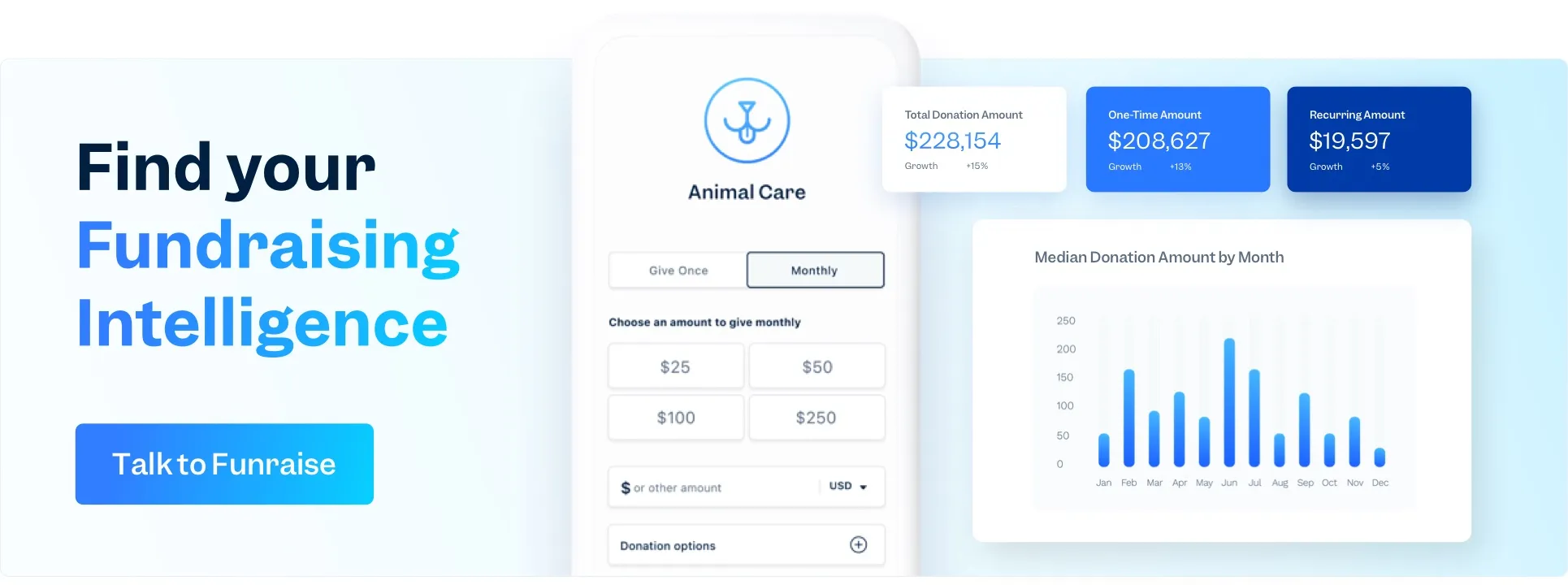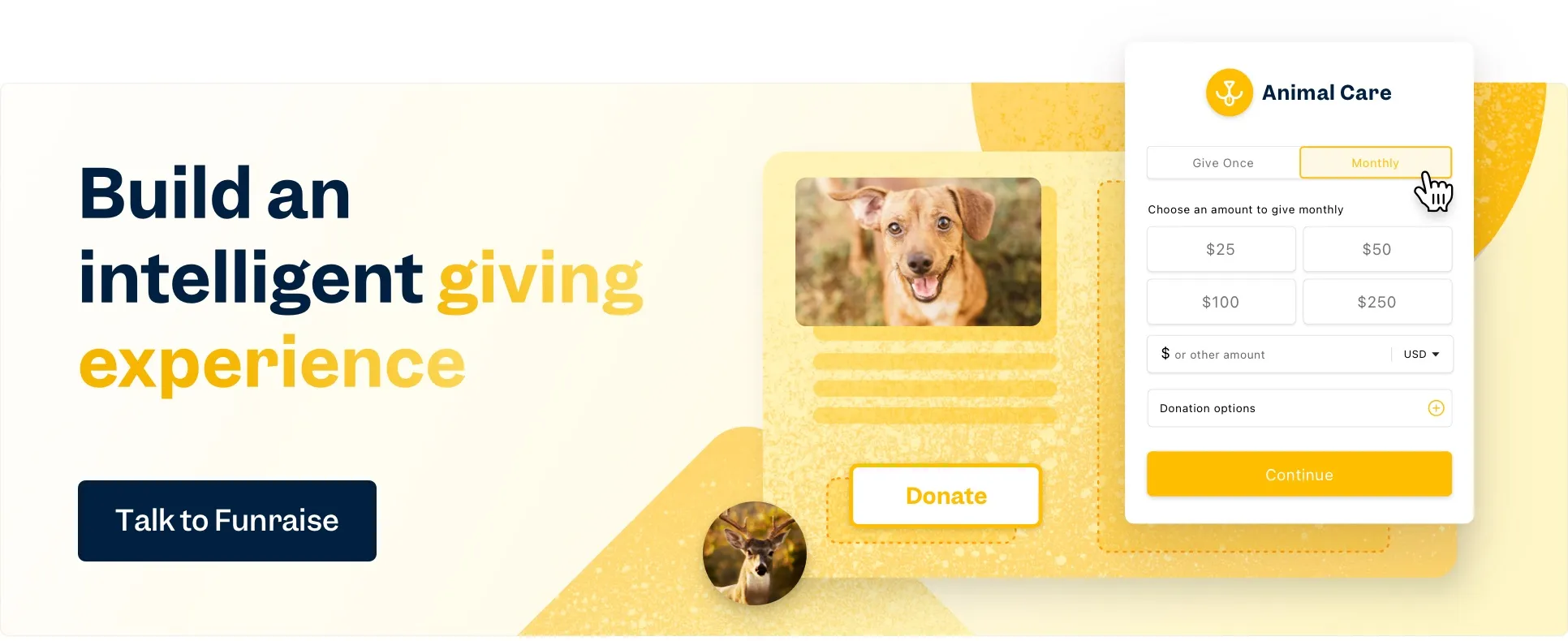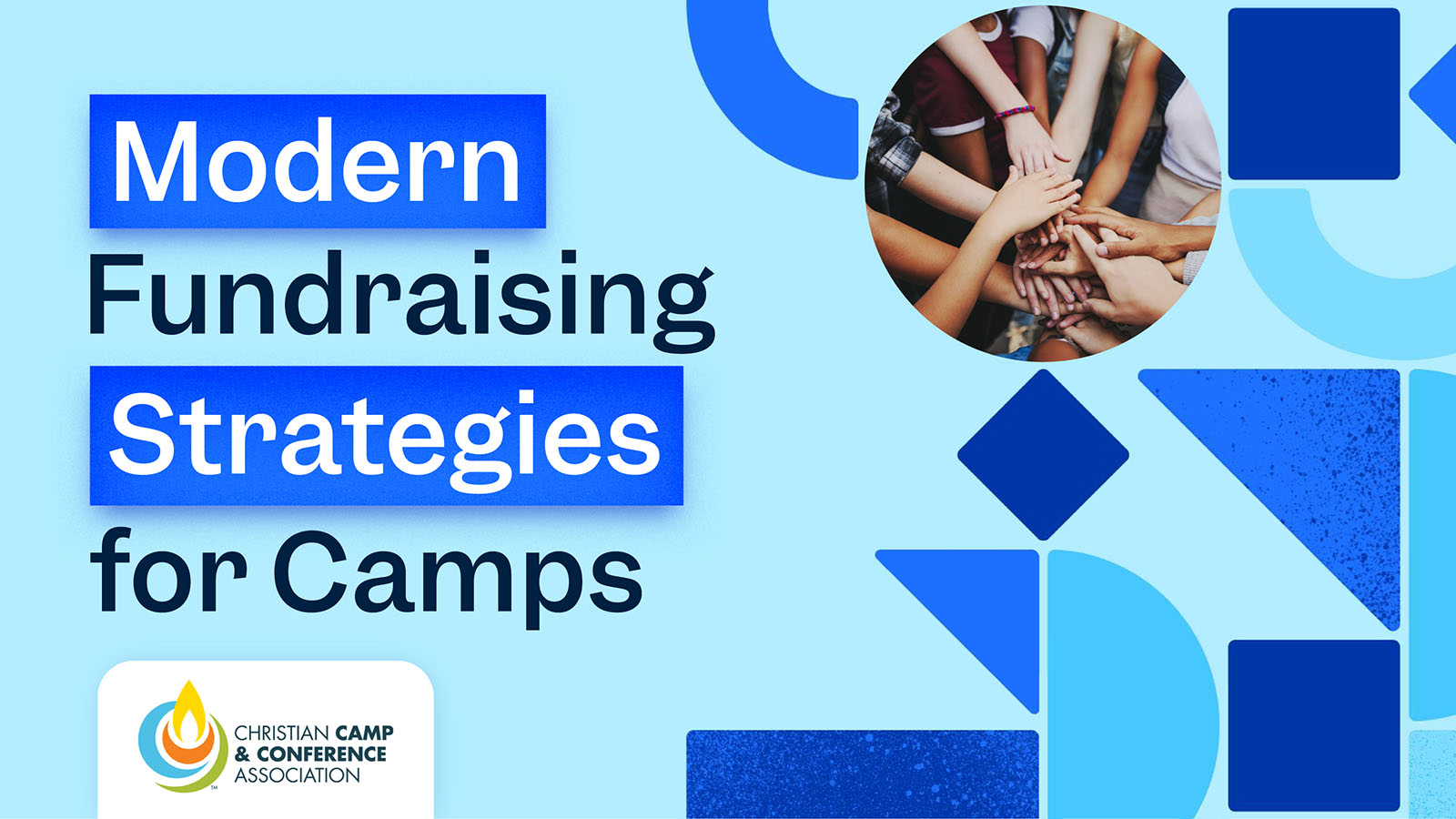Everyone in the nonprofit realm is well acquainted with our culture of mindless consumption. It’s kinda the antithesis of everything we do and strive for, but it can still be confusing—especially to those of us whose jobs depend on asking others to give!
In direct contrast to our culture of taking more, more, more is the Indigenous idea of the Honorable Harvest.
Robin Wall Kimmerer coined the phrase in her book, Braiding Sweetgrass, which devotes a full chapter to this mindset. The Honorable Harvest is all about living in harmony with the land around us, never taking too much, always seeking the balance. It’s a way of living that’s sustainable, adaptable, and mindful—and it has many salient lessons to offer anyone involved in nonprofit fundraising. So, here’s your primer on the Honorable Harvest and what it can teach us about conscious and sustainable fundraising.
We also want to give a special thanks to Alexis Nikole for her “loving rant” on the Honorable Harvest in relation to mindful foraging. She regularly inspires us with her elderflower syrups and thoughtful commentary, and she inspired this here article.
What exactly is the Honorable Harvest?
There’s no single definition of the Honorable Harvest—it’s an ethos, not a set of hard-and-fast rules. In her chapter on the Honorable Harvest, Robin Kimmerer explains, “The guidelines for the Honorable Harvest are not written down, or even consistently spoken of as a whole—they are reinforced in small acts of daily life.” But, she adds, if you did list out the rules, they might look like this:
- Know the ways of the ones who take care of you, so that you may take care of them.
- Introduce yourself. Be accountable as the one who comes asking for life.
- Ask permission before taking. Abide by the answer.
- Never take the first. Never take the last.
- Take only what you need.
- Take only that which is given.
- Never take more than half. Leave some for others.
- Harvest in a way that minimizes harm.
- Use it respectfully. Never waste what you have taken.
- Share.
- Give thanks for what you have been given.
- Give a gift, in reciprocity for what you have taken.
- Sustain the ones who sustain you and the earth will last forever.
The Honorable Harvest ethos as fundraising rules
The Honorable Harvest teaches us to seek the balance in our relationship with the natural world. And while a few of the tenets don’t easily apply to fundraising, there’s ample overlap. In nonprofit fundraising, we’re often dealing with a lack of balance; almost always, there’s too much or not enough. Too many hours, not enough staff members. Too many to help, not enough dollars to do it. Too much talk, not enough action.
But with careful planning and continued mindfulness when it comes to our interactions with donors, staff members, volunteers, and clients, we can find that easy ebb and flow—that stable fundraising ground that allows us all to flourish. Here are some ways to braid The Honorable Harvest into your fundraising.
Introduce yourself. Be accountable as the one who comes asking for life. Relationships are integral to successful nonprofit fundraising. If you want long-term, mutually beneficial relationships, you need to start with a strong foundation. When you connect with a prospective donor or volunteer, it’s up to you to make a lasting impression. Tell them what you do and why it matters. Then, show them how they can make a difference.
Ask permission before taking. Abide by the answer. Stories are the bedrock of nonprofit fundraising. But sometimes, we forget that behind every image and every vignette is someone real. That means you need to ask permission before sharing someone’s picture or quoting them in a newsletter. Then, you need to respect their wishes. This applies to your staff members as well. Even if resources are stretched thin and you’re three weeks away from your annual gala, make the effort to check in on your employees. Ask how they’re holding up and if they have capacity for additional work before assigning it. If they truly don’t, push a deadline or find another way.
Take only what you need. Take only that which is given. If you pick every chanterelle, no one else will be able to enjoy a nice chanterelle pasta with a glass of good red wine that night. By taking only the chanterelles you need, you’re putting community over self in favor of building a stronger collective ecosystem. And that just happens to be one of the principles of community-centric fundraising! So, apply to grants selectively, partner with your fellow nonprofits, and seek to prioritize the larger community over your individual organization.
Harvest in a way that minimizes harm. Sometimes, the nonprofit fundraising world is complicated. There are conflicts of interest, ethical dilemmas, privacy concerns, and more. And most of these issues don’t have a right or wrong answer. In the end, all you can do is weigh the pros and cons with a focus on mitigating harm and maximizing good.
Use it respectfully. Never waste what you have taken. Using your many fundraising assets respectfully applies to donors and volunteers alike. Many donors have specific asks around how their gifts are used. Sure, you might think that money could be put to better use elsewhere, but if you don’t use donations as requested, you’ll risk breaking their trust. Furthermore, if you’re fortunate enough to have committed volunteers, you need to be respectful of their time and energy. Don’t assume they’ll always give more, and use the time they give meaningfully, in service of your mission.
Share. While nonprofits aren’t known for having a bucket that doth overflow, you can still share the (nonmonetary) bounty. Share information, relationships, and opportunities with your fellow nonprofits. Share uplifting news with your donors, staff members, and volunteers. And share acts of kindness with your community.
Give thanks for what you have been given. Talk about hitting the nail on the head! Thank your donors, of course, but also thank your staff members and volunteers—frequently and authentically.
Give a gift in reciprocity for what you have taken. In addition to saying thank you for monetary gifts and gifts of time and energy, give back to those who have given to you. Give the gift of making an impact. Give the gift of sharing stories of change.
Sustain the ones who sustain you and the earth will last forever. Remember that you’re part of something bigger. Be a part of the fabric of your community. Partner with other organizations. Show gratitude for your staff members and volunteers. Shop local. Think big picture. Be kind.
The next step: Support Indigenous peoples
The Honorable Harvest is just one example of Indigenous peoples’ reciprocal relationship with the natural world. Yet despite this tradition of conservation and their continued activism, they’ve been grossly mistreated, silenced, and discriminated against throughout history. If you want to change that, here are a few places to start.
Support Indigenous-led nonprofits
- Native Governance Center assists Native nations in strengthening their governance systems and capacity to exercise sovereignty.
- Native American Advancement Foundation supports Indigenous communities in education, health and wellness, housing, food sustainability, animal welfare, and more.
- Piña Soul is an environmental consulting business supporting Black and Indigenous-led conservation and environmental projects.
- Yellowhawk Tribal Health Center provides high-quality, primary healthcare for the Confederated Tribes of the Umatilla Indian Reservation (CTUIR) and other American Indians and Alaska Natives in Oregon’s Umatilla and Union counties.
- Pōhāhā I Ka Lani is a Hawaiian nonprofit working to revitalize and advance indigenous Kanaka Maoli cultural knowledge and land stewardship.
- North American Traditional Indigenous Food Systems (NĀTIFS), founded by James Beard-winning chef Sean Sherman (@siouxchef on IG), focuses on re-establishing Native foodways as a means to addressing the economic and health crises affecting Native communities.
Read books by Indigenous authors
- Braiding Sweetgrass by Robin Wall Kimmerer, a botanist and member of the Citizen Potawatomi Nation, explores the fertile relationship between Indigenous wisdom and scientific knowledge.
- Ceremony by Leslie Marmon Silko tells the story of a fictional WWII veteran returning to the Laguna Pueblo reservation. Suffering from PTSD, he seeks solace in his people’s traditions and beliefs.
- Mankiller: A Chief and Her People by Wilma Mankiller and Michael Wallis details the history of Wilma Mankiller, former Chief of the Cherokee Nation, as well as the the Indigenous struggle for civil rights.
- Our History Is the Future by Nick Estes shares how 200+ years of Indigenous resistance led to the #noDAPL movement.
- There There by Tommy Orange follows 12 different Indigenous characters as they travel to the Big Oklahoma Powwow. The novel is unique in showcasing the diversity of Indigenous communities.
...and don't forget to patronize your local bookseller or a bookseller that specializes in Indigenous books and authors!
Support Indigenous artists
- Eighth Generation is an art and lifestyle brand owned by the Snoqualmie Tribe. You can shop for blankets, prints, jewelry, and more, with 100% of the products designed by Native artists.
- Project 562 is photographer Matika Wilbur’s national photography project, celebrating contemporary Native life. Over the years, she’s worked to photograph over 562 federally recognized Tribes.
- Ginew is the first Native American-owned denim collection, selling denim, tees, accessories, and other goods. The brand incorporates family symbols and teachings into their garments.
- Beyond Buckskin is an online boutique that showcases over 40 Native artists and small businesses. All their designers use traditional Indigenous artistic practices, bringing ancient designs, natural materials, and cultural stories to modern fashion.
Amplify Indigenous voices …starting with Indigenous TikTok creators
- Sherry McKay, an Ojibway Anishinabe woman, discusses parenthood and debunks Indigenous stereotypes, all with a side of humor.
- James Jones, from the Tallcree First Nation in Alberta, demonstrates his traditional hoop dance skills for his nearly 4 million followers.
- Brett Mooswa, a member of the Makwa Sahgaiehcan First Nation, shares Native culture through comedy while advocating for Indigenous justice.
- Chelzaon Leroux is a two-spirit, Indigenous drag queen who competed in season 3 of Canada’s Drag Race.
- Shina Nova is an Inuk throat singer educating her 4 million followers about Indigenous culture through songs and skits.
The last thing anyone needs is another item on their to-do list. Instead, use this time to take deep breaths and appreciate the wondrous world around us. Acknowledge the Indigenous peoples who lived where you now live, give thanks, give back, and, always, seek the balance.































.webp)
.webp)











.webp)
.webp)

.webp)
.webp)
.webp)




